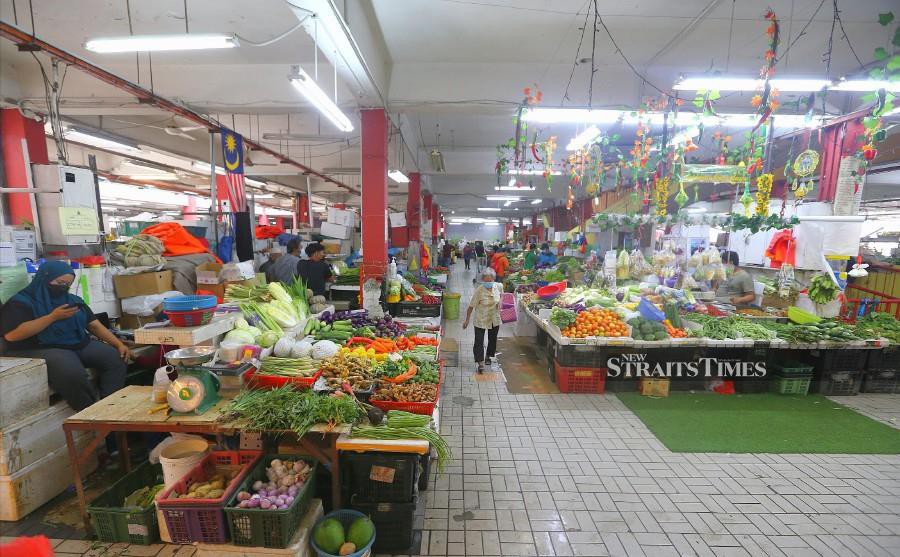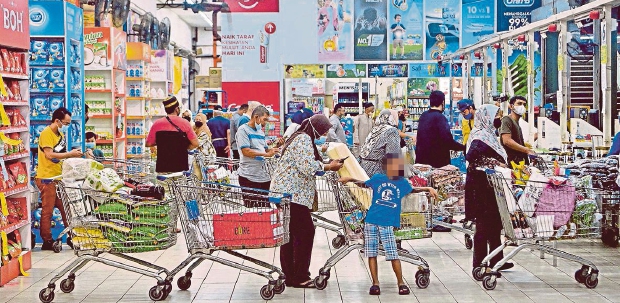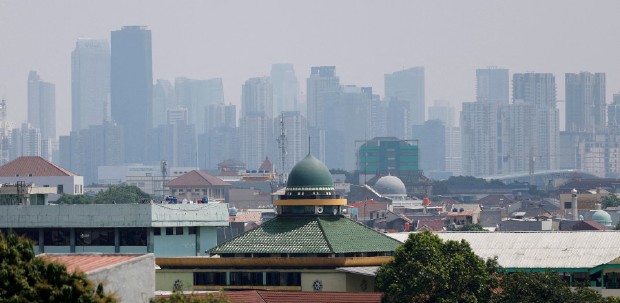LAST year, the Malaysian economy managed to avert the worst case scenario, and like most countries in the world, experienced a recession. But, it was not as worse as the 1997/98 Asian Financial Crisis.
This year, the challenges would be more daunting. The World Health Organisation has declared that the world is now entering into a 'new and dangerous phase' in dealing with the pandemic. The implementation of the second total lockdown in Malaysia beginning in June has little impact in breaking the chain of infection.
With recent daily cases going beyond 9,000, it will surely delay the opening up of the economy under the National Recovery Plan (NRP), as the first criteria of the NRP would be difficult to be met, hence, many states will still be stuck in the first or second phase of the NRP.
More of an issue would be the imposition of the Enhanced Movement Control Order (EMCO) in Selangor and Kuala Lumpur, which contribute around 40 per cent to the national's gross domestic product (GDP). Under the NRP, the opening up of the economy will only be felt in the third phase of the exit strategy.
The white flag movement is now trending, in the real world and in the social media and online application, demonstrating that people are already on the verge of breaking down. More worryingly, the suicidal rate is now accelerating.
Thus, certain quarters posed the question whether this is a sign that Malaysia is moving towards becoming a failed state? Looking deeper, not really, at least from an economic stand point. It is crucial here to put things into perspective.
Recently, The World Bank has downgraded its forecast to the Malaysian economic growth this year to 4.5 per cent from 6 per cent. In other words, factoring in all issues and challenges at hand, the economy is still expected to grow, not shrink.
Hence, this is not a failed state. After all, in March alone, the economy had already expanded at 6 per cent. The Central Bank of Malaysia in its latest decision through the monetary policy Committee (MPC), has decided to maintain the Overnight Policy Rate (OPR) at 1.75 per cent, again, implying that the economy is on the right track for recovery.
The MPC decision is clearly against the expectation of many analysts and economists who predicted that the OPR might be cut to boost the economy further.
Perhaps what is more important to appreciate is that two influential credit rating agencies, Moody's and S&P, have reaffirmed Malaysia's rating and outlook for this year. To put it another way, Malaysia's fiscal position is still robust and not cracking.
True, we might not achieve the deficit target of the 2021 Budget of 5.4 per cent, but the fiscal space is still ample for Malaysia to increase its deficit level for the sake of helping the people, even with the RM530 billion total value of all the stimulus packages announced since March last year.
After all, even Singapore's deficit is also expected to increase above 15 per cent this year. As the parliament will reconvene soon, it is about right that the government increase the self-imposed limit of the debt-to-GDP ratio further. We can increase the debt level further for now, while waiting for the herd immunity to be achieved at the end of this year, even earlier.
For next year, the World Bank forecasts that the Malaysian economy to grow at 5 per cent. Again, an indication of a healthy economy which can grow steadily and sustainably, not characteristics of a failed state whatsoever.
And early this month, the government launched the national Fourth Industrial Revolution (IR4.0) policy, to be another milestone to transform the economy into an inclusive and sustainable high-income nation.
The IR4.0 policy will unlock new sources of quality growth for Malaysia which is based on digitalisation and sustainability. It will be a catalyst for creating quality and high-income jobs of the future for all Malaysians, especially for the youth.
And it certainly is an important enabler to prepare the economy for
the post-pandemic era with the vaccination drive is currently on its high speed, even exceeding other developed countries, such as the UK.
For now, the government must prioritise the people economy above anything else. In fact, it must be the collective effort of all of us to win this war once and for all.
The writer is Associate Professor and Head of Political and Economic Risk Research Unit, Universiti Utara Malaysia
The views expressed in this article are the author's own and do not necessarily reflect those of the New Straits Times






